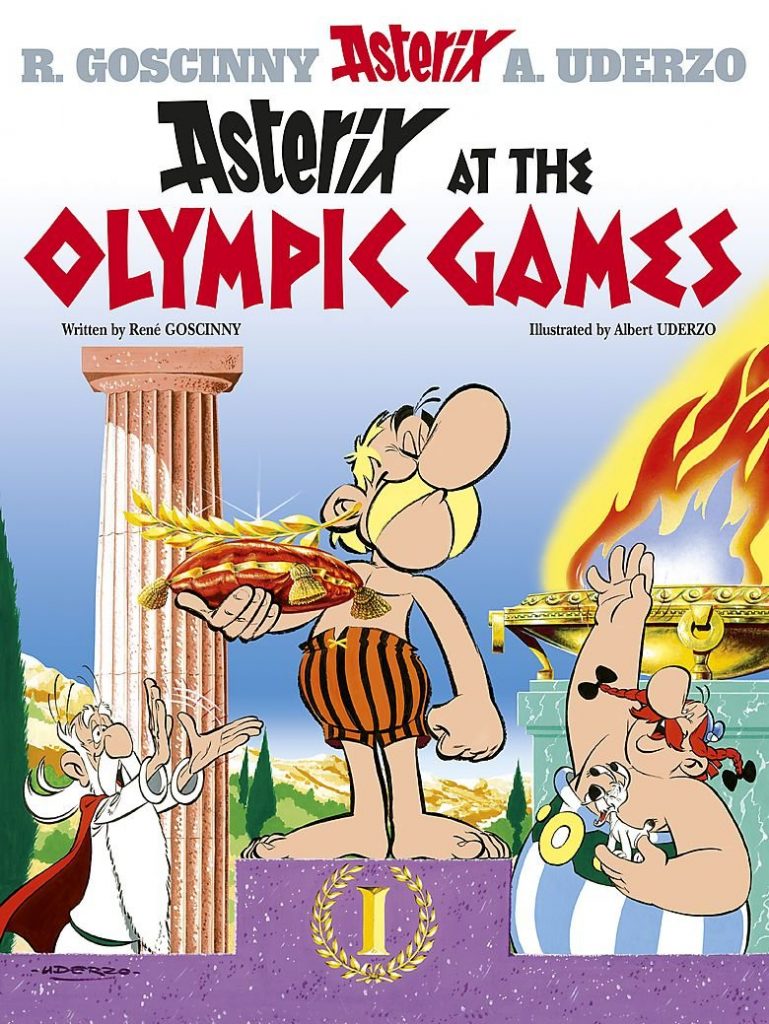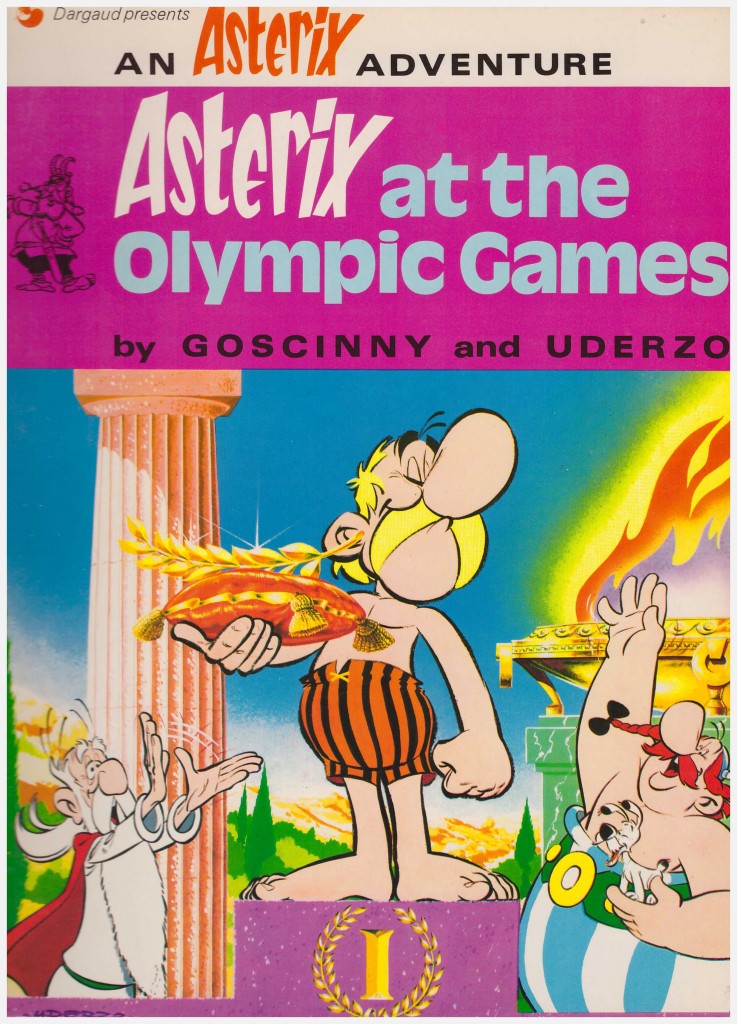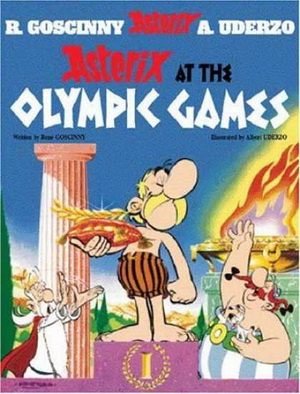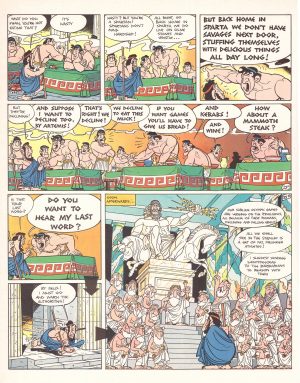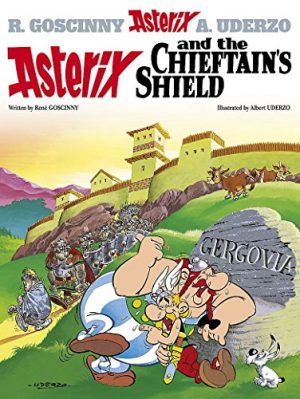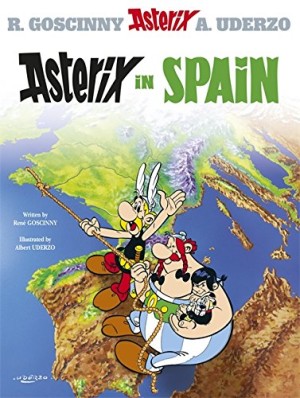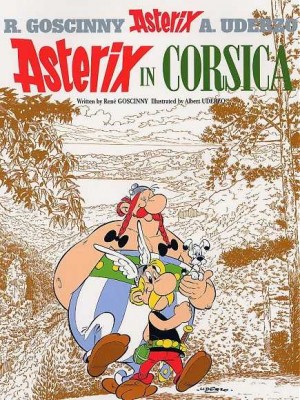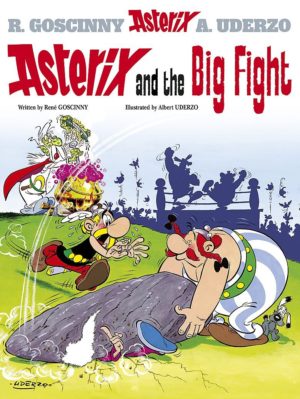Review by Andrew Littlefield
Doping scandals at the Olympic Games are nothing new, if this, the twelfth volume in the Asterix series, is to be believed. In a bid to upstage their Roman enemies, the inhabitants of the little Gaulish village declare themselves Gallo-Romans so that they can compete in the sacred Games, open only to male Greek and Roman entrants. All of the men in the village decamp to Olympia, believing that the magic potion that grants them superhuman powers will give them a huge competitive advantage in the Games. Unfortunately, the potion is outlawed as an artificial stimulant, forcing Asterix to compete ‘clean’ – but can the same be said of his fellow athletes?
Asterix at the Olympic Games was first published, as Asterix aux Jeux Olympiques, in 1968, the year of the Mexico City Olympics. The English translation, by Anthea Bell and Derek Hockridge, followed in 1972, coinciding with the Munich Olympics. The Greek setting not only gives Bell and Hockridge the chance to devise a whole new range of punning names – we meet local tour guide Diabetes, who has cousins called Thermos and Kudos – but also allows writer René Goscinny and artist Albert Uderzo to make plenty of gags about Greek history and culture, with the indomitable Gauls sampling kebabs and resinated wine, and village elder Geriatrix enthusiastically taking part in some lusty Greek dancing. It’s the stuff of stereotype, but conceived without malice, and as always in Asterix travel to strange foreign lands ultimately broadens the minds and horizons of our lead characters. At the end of this adventure, Asterix even finds it within himself to gift his victory palm to the defeated Romans, saving them from Caesar’s displeasure.
If we were to award Asterix at the Olympic Games a medal it would have to be a Gold, in recognition of a utterly confident performance that delivers all the verbal humour and visual pleasure we’ve come to expect from creators at the very top of their game.
